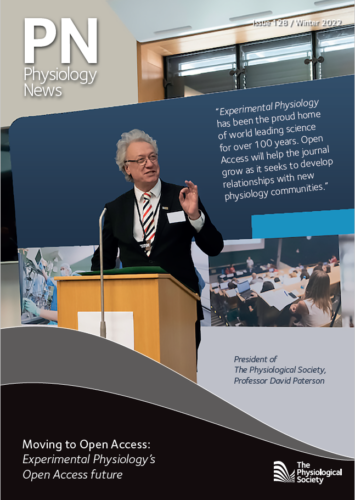
Physiology News Magazine
Variability, Physiological Variability and Individual Responses: A Practical Research Workshop
Meeting Preview
Events
Variability, Physiological Variability and Individual Responses: A Practical Research Workshop
Meeting Preview
Events

Dr Jo Corbett
University of Portsmouth, UK

Dr Adam McDonnell
Jozef Stefan Institute, Ljubljana, Slovenia
When a group of individuals undergo an identical experimental intervention, they do not typically all respond in an identical manner or even in the same direction. Indeed, perhaps the one invariant amongst physiologists conducting research across the various domains is that the data that they collect will contain variability! If it did not have inter-individual variability, then ‘n = 1’ would be the default experimental design rather than the exception.
Typically, an intervention is evaluated by comparing the average or mean. This we know is quite useful in describing the expected outcome, but it does not accurately describe the response of all of the individuals involved in the experimental group. Variability has historically been viewed by researchers as an inconvenience and so for many years the default approach to dealing with variability was a reductionist one, with data often condensed into “neat” reporting of summary measures of central tendency and dispersion. However, more recently there has been an increase in awareness that “variability” within the data itself is a rich source of information. The careful identification and quantification of individual variability has implications, not only for the optimisation of health interventions, but also for the determination of pathophysiological processes that can underpin the provision of personalised medicine. Caution should be applied, however, with regard to applying classification to the observed responses.
The evolution towards embracing variability within research data has led to a growing realisation that, to properly understand interindividual variability, an experiment must be designed in such a way that the “true” interindividual variation in the response may be titrated from the effects of the random within-subject variation. Such experimental designs need to strike a real-world balance between rigorous experimental designs and the practical realities of conducting these research studies. Once such an experiment has been conducted, the physiologist must then be equipped to present in a manner that displays this variability to the audience using appropriate data visualisation approaches, and subsequently that the interpretation of the variability within the data is clearly and accurately communicated to the scientific community. In order to provide scientists with the appropriate tools to conduct such research, The Physiological Society is hosting a workshop titled, “Variability, Physiological Variability and Individual Responses: A Practical Research Workshop”.

This workshop on Tuesday 4 April 2023 in London will feature contributions from three discipline experts, allowing a greater amount of time for the presenters to expand on key points, give step-by-step guidance, and to provide practical “worked examples” of approaches to the assessment of variability covering a variety of experimental designs (their strengths and weaknesses), statistical methods and presentation and data interpretation. The afternoon session of this one-day workshop will host an interactive symposium for early career researchers to present their research, including data on individual variation.
Registration is open now and closes on 15 March 2023. Early career researchers can submit their work to be discussed from 1 December 2022. Find out more at physoc.org/events/variability-physiological-variability-and-individual-responses/
